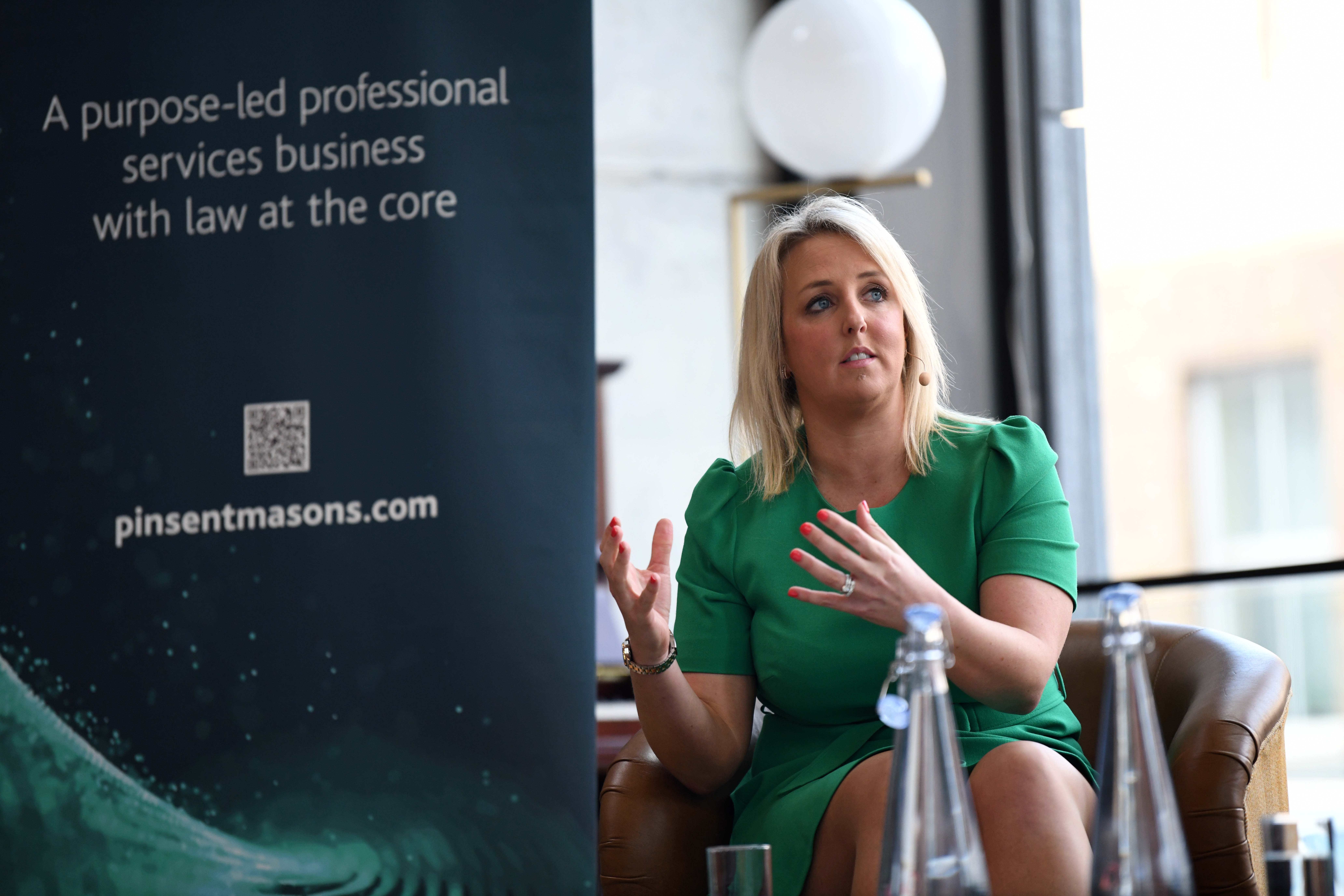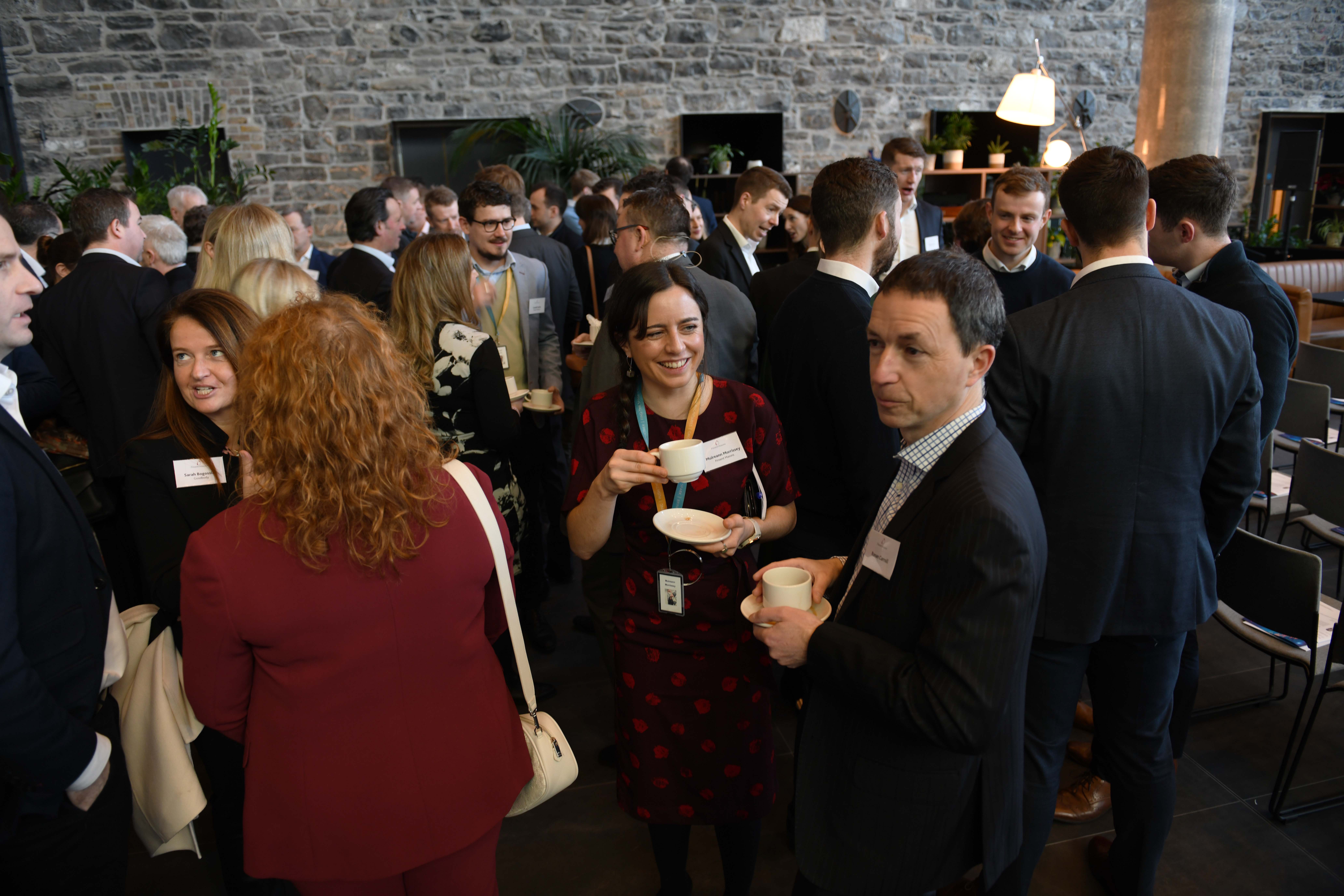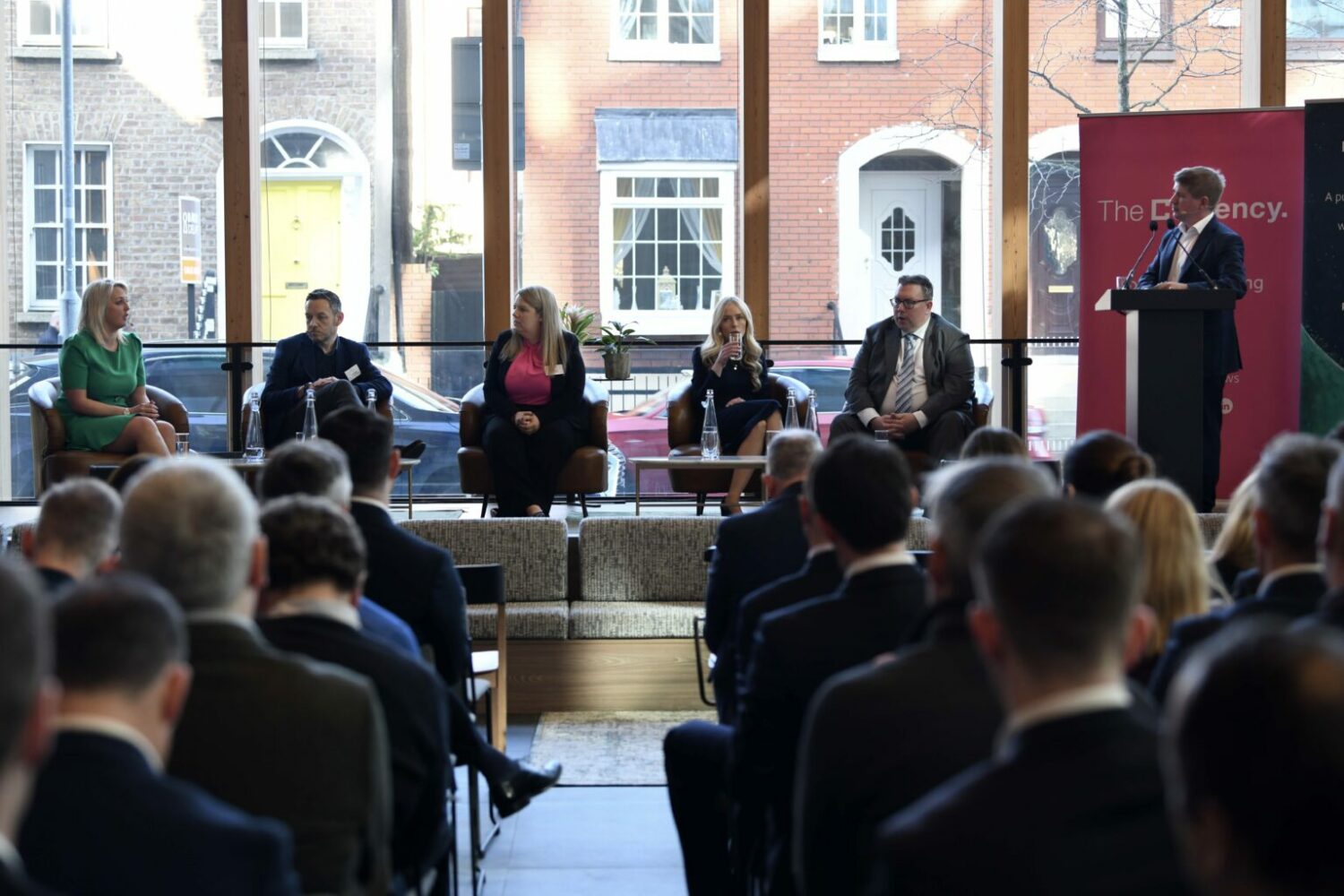On a bright cold morning earlier this month, Dublin’s M&A industry converged on Windmill Lane for Pinsent Masons and The Currency’s Build, Scale and Exit event.
The event was framed around the question, “what does 2023 hold for the private equity market?” In attendance were private equity fund managers, M&A advisors, lawyers, consultants, wheeler dealers, and curious SME owners. As Pinsent Masons partner Gerry Beausang said in his opening remarks, the goal of the day was to “demystify the process” by bringing business owners and private equity professionals together.
There’s an asymmetry in private equity deals. The people with the most to gain — the business owners — only sell their company once. So they’re not plugged into what’s happening in the private equity space.
That’s why it was worth hearing from Eoin Goulding — the founder, former CEO, and now president of Integrity360. In a room skewed towards advisors and M&A professionals, Goulding offered the seller’s perspective.
Having founded Integrity360 in 2005, Goulding sold a majority stake to August Equity, a private equity firm, in 2021. He always had an entrepreneurial streak: “I started my first business when I was 19, in a room above a record and video store at Rathmines Road. I was selling PCs and servers. I did it for four years, then closed it down. I couldn’t make it work.”
He stayed alert: “Then I saw a job for an American company, for an IT security sales job. I had no idea what it was. I got that job. And then within two years, they decided to pull out of Ireland. And that’s when I saw an opportunity. I had no money. The bank wouldn’t give me any money. But I convinced about six staff to come on board with me.”
They built the cyber security business from there: “We started selling one-off products. Then we brought out a simple support service. We then brought in three- to five-year contracts. So when you’re going into the following year, you have revenue, which is a great way to be. And then you can keep investing back in that business.”

Eventually, it was time to change course. “Every year, we had great products. And I wanted to keep turbocharging our journey. But come 2020, I had fallen out of love with the business. I was working 12 hours a day for the last 16-15 years, even on holidays. I really enjoyed it. But in 2020 I reflected and said, ‘Okay, now I’m not enjoying this as much as before. So how do I de-risk this for me, and some of the other shareholders?’”
“Taking private equity really allowed me to do it. It also allowed me to take the foot off the gas,” he added.
Selling a multi-million euro business is no simple thing. Especially for a seller going through the process for the first time. Goulding set out to test the market, without revealing what he was up to: “I wasn’t sure of the value of Integrity. So I went out into the market and said, ‘Hey, we’re raising debt for the business. How much debt could we get for the business? Who could we go out and acquire as well… And, by the way, how much do you think we’re worth?’ So we got a lot of information back. A lot of free information.”
He said knowledge about M&A goes a long way for business owners: “I realised a lot of other business owners don’t really know what’s involved. They don’t know what an SPA is — a share purchase agreement. They don’t know tax, diligence, all this type of thing. So [I would advise sellers to] really understand the process. And definitely talk to other business owners to understand that better. And you can go out and test the market. You can test the market, without people really knowing what you’re doing. You can pick up information.”

In a room full of M&A advisors, Goulding’s view on the value of good advice carried extra weight. He had paid for advice and was glad of it. He stressed the importance of chemistry: “You need to trust these advisors because you’re giving them a lot of confidential information. They’ve gotta do what’s best for you and for the business and the people in the business. Not just take their fee. So, certainly – trust, chemistry, knowing the sector and the transactional experience. With three days to closing, we were all in the office late at night – and we had a great time. We really enjoyed the process.”
Not just money
Now the deal is done, Goulding sees how Integrity360 has benefited from its new shareholders. “Private equity investors have a lot of knowledge on how to scale. They’re not just there to give you money.
“And also another thing private equity does is keep hold of my knowledge,” he added. “It keeps me in contact with key people. Absolutely critical. So [the business] is getting another thing as well – I’m learning from other board meetings, we’re talking about strategy, and I’m hearing stuff I wouldn’t have heard before. So it’s a win-win situation.”
Goulding’s ambitions for Integrity360 have not been dimmed by the investments. Asked about the next steps for the company, he said: “We’ll be looking at other options. And that may be an IPO. Or we may continue on our growth path.”
Finding himself with more time and money, Goulding has taken to investing. In January he bought Altada, the struggling Cork-based AI startup, out of receivership. What attracted him to the deal? “It reminded me a lot of Integrity360. First of all, it’s in a very niche, hot sector. And the other thing that it reminded me of is the talent. You’ve got 22 data scientists in that business. And they have a very unique platform.”

Goulding hopes he can turn it around. “That business was just mismanaged. And what really attracted me to that business as well – the staff had not been paid, and they hadn’t left. I said ‘hang on, there is something there in this business.’ I learned more about AI. I still don’t know anything about cybersecurity, by the way. I’m still trying to learn. So: niche sector, very talented, great culture in the business. They just need to get the right people in and go on the journey. With everyone going in the same direction.”
Goulding was followed on stage by some of Ireland’s leading M&A advisors, including solicitor Gerry Beausang and accountant Hazel Cryan who had helped guide him through the successful sale of Integrity360. Each gave their view of the state of the industry from their side of the fence. Gerry Beausang, a partner with Pinsent Masons, said there are unique features of the Irish market that make it attractive to PE. PE firms are primarily looking to scale, and Irish firms, he said, do that well. It’s to do with Ireland’s small domestic market, which necessitates an outward-looking mindset: “Why are Irish assets attractive? There are a number of reasons but one is that Irish businesses look from the small domestic economy to the international one quite quickly. And private equity funds are attracted by scale.”
Beausang’s view was echoed by Lisa Early, legal director at Pinsent Masons. She said: “We are regularly in touch with a lot of our UK and international clients who are super keen to invest here, because it is a great market. There are some fantastic businesses here that they want to invest in.”

The general outlook among the panellists was optimistic, despite macroeconomic headwinds. Anya Cummins, head of Deloitte Private and a partner in its M&A advisory team, said: “Deal volume was down last year in the mid-market in Ireland, which is where the majority of the transactions are. And deal volume fell a little bit, but it held pretty stable. What we’re seeing, though, is it’s quite sector-specific. A lot of the transactions have been weighted towards high-quality businesses in those sectors.” As Cummins said in her interview with The Currency last month: “Quality businesses are not seeing the same extent of the valuation impact. Any hair on it, and you’re in trouble.”
The Currency has written previously about Irish firms’ strange aversion to debt. This is a central question for PE deals since PE buyers usually rely on debt to help generate their returns. Hazel Cryan, a KPMG corporate finance partner, said: “I don’t think you’re going to get your returns if you’re going in 100 per cent equity. So even with rising interest rates, debt is always going to be cheaper than equity. An important distinction [between Ireland and] global markets is the leverage that goes into transactions here is quite conservative. It’s two, two and a half times.”
Rory Quirke, Partner in the PE firm MML Capital, said inflation has been a new and interesting challenge. “The last time there was meaningful inflation, I was in college – and I think I’m older than most people in the room. We don’t have experience working in an inflationary environment. And that has created huge challenges.”
Quirke said that, given the circumstances, firms have handled the inflation shock fairly: “You’ve got a trusted customer base, and you’re finding it difficult to supply to them, and you’re having to go back and renegotiate contracts mid-contract. To be fair to the management teams that I’ve seen, I think people have done amazing things. I think businesses are in a way better place now than they were maybe months ago.”



